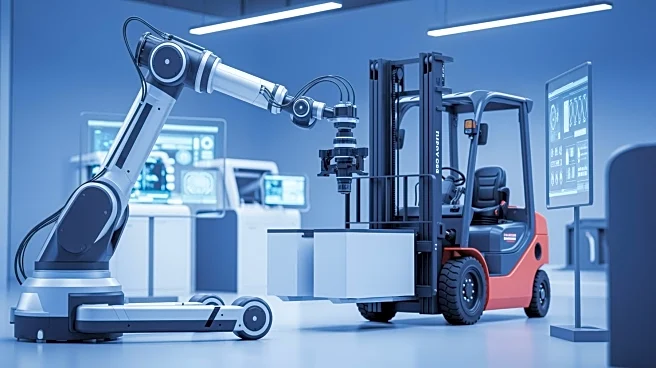What's Happening?
As industrial sites increasingly adopt robotics and automation, the role of forklift operators is undergoing significant transformation. Companies like All Lift Forklifts and Toyota Material Handling are
leading efforts to upskill operators, integrating advanced technologies such as telematics, AI, and semi-autonomous features into their fleets. This shift requires operators to develop new competencies, blending traditional driving skills with digital fluency to manage and collaborate with robotic systems.
Why It's Important?
The transition to autonomous worksites represents a major shift in the industrial sector, impacting employment and skill requirements. By upskilling workers, companies aim to maintain workforce relevance and enhance operational efficiency. This evolution could lead to increased job security for operators who adapt, while also setting a precedent for other industries facing similar technological advancements. The integration of robotics is expected to improve safety and productivity, but it also necessitates a reevaluation of training programs and industry standards.
What's Next?
As automation continues to expand, further developments in training programs and industry partnerships are anticipated. Companies may increase investment in technology-driven education to bridge the skills gap, ensuring operators are equipped to handle future challenges. The success of these initiatives could influence broader adoption of similar strategies across various sectors, potentially reshaping the industrial workforce landscape.









